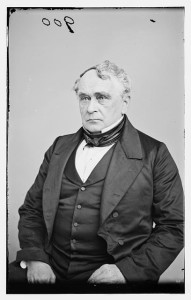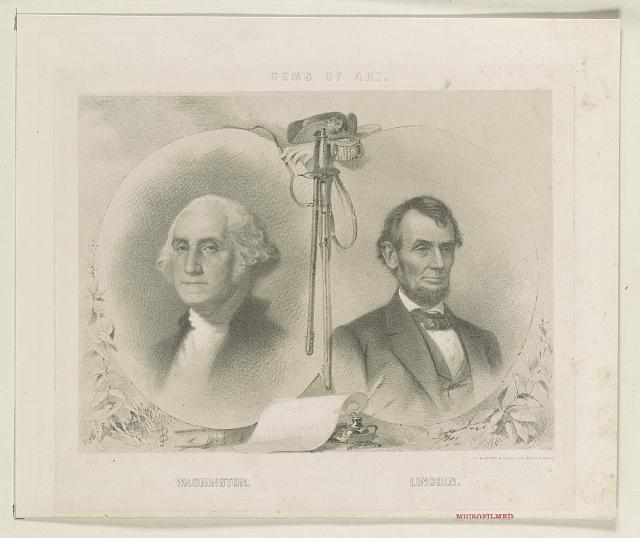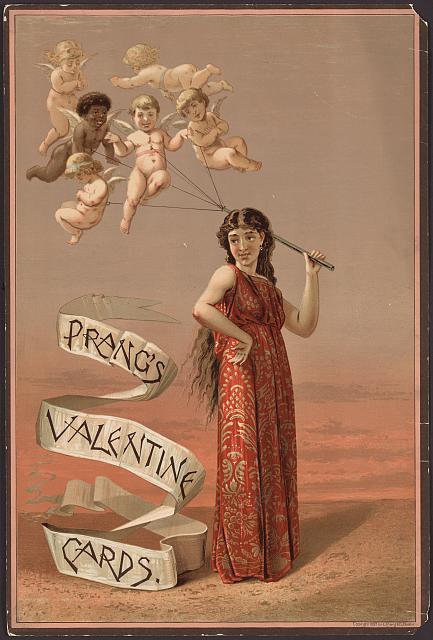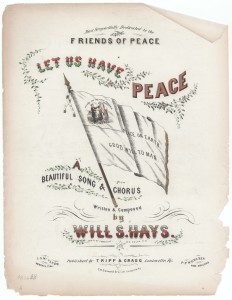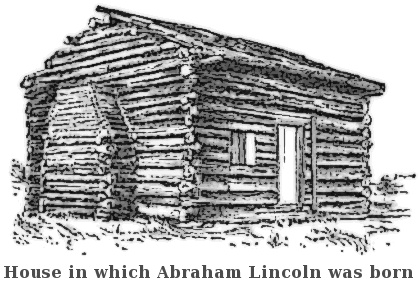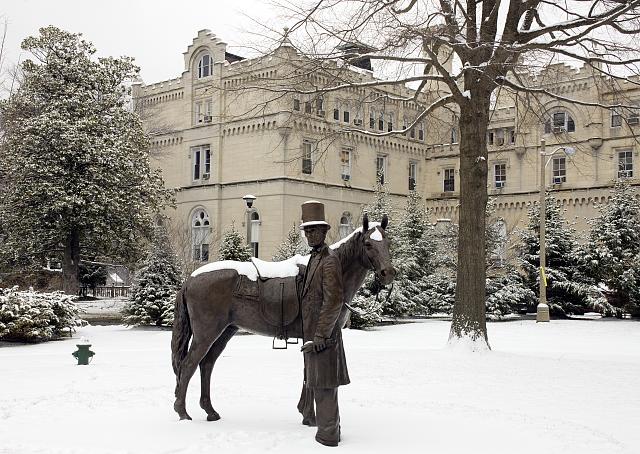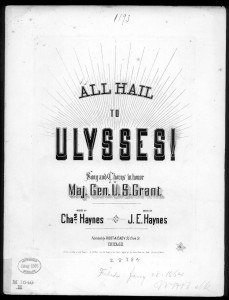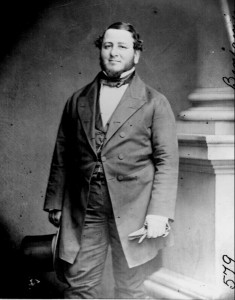
‘hope beams on every countenance’
On February 9, 1865 Richmond held a meeting to take stock of the unsuccessful peace negotiations held earlier in the month and to discuss what to do next. Secretary of State Judah P. Benjamin was one of the speakers. He brought up the idea of freeing slaves who agreed to fight for the Confederacy. The alternative would be a Southern society run by Yankees and ex-slaves. From the Richmond Daily Dispatch February 10, 1865:
The mass meetings yesterday.
great enthusiasm of the people.
addresses by the Hons. R. M. T. Hunter, Secretary Benjamin, and others.
The largest and most enthusiastic meeting ever held in this city was convened at the African Church on yesterday. Two hours before the time of meeting, the whole body of the church, aisles and windows, were crowded, and quite as large a concourse was obliged to stand in the streets, being unable to obtain access to the building. The objects of the meeting were to adopt resolutions expressive of the feelings of the people of Virginia, excited by the gross insult put upon us by Lincoln in his late meeting with our. commissioners at Fortress Monroe, and to take counsel as to our future. …
Speech of Hon. J. P. Benjamin.
Hon. J. P. Benjamin, Secretary of State of the Confederate States, was announced as the next speaker. He was greeted with rousing cheers, and spoke, in substance, as follows:
The number of persons composing this meeting, the cheers with which I hear you greet every expression of patriotic sentiment, shows the defiance with which your breasts are swelling, and the hot flush which all feel, at the bare thought of the ignominy which an arrogant Government has proposed to you, that you should bend the knee, bow the neck, and meekly submit to the conqueror’s yoke; and all give assurance that the fire of freedom burns unquenchably in your souls. How different from one short week ago! It seem an age, so magic has been the change. Then, despondency and hope deterred oppressed and weighed upon us, men were and asking if it were true that no honorable peace were attainable except by continued warfare. Then, it was said it was our parvise indisposition to negotiate that led to the arrogance of the invader. This delusion went so far that it penetrated the legislative halls, and threatened a disruption of the harmony of our councils. Now, cheerful voices are heard all around, and hope beams on every countenance. Now, the resolute and war-worn soldier is nerved anew. Now, the Cheering and purifying influence of our glorious women sheds its light over our cause, and still leads us on in the path of duty and honor. What is the cause of this striking change in the aspect of our affairs? Have we found fillies [allies?] in foreign lands, such as came to our fathers in the hour of their sorest need, to stretch their arm to our assistance. Has any European State come to our aid in the time of our extremity? Not so; but just the reverse. Our gallant Beauregard is still contending against Sherman, and I heard men this morning speculating on the chances of his drawing in his lines an abandoning the defence of Charleston. Glorious Charleston, which, for over twenty months, has withstood a fire such as has never been rained on a devoted city. Our enemies are still arrayed against us. There is no voice from across the Atlantic of any aid to be extended. What then is the cause of this change? It is the knowledge which has come home to the understanding and the hearts of the people. We now know, in the core of our hearts, that [t]his people must conquer its freedom or die. [Cheers.] No Southern man ever dreamed of such arrogation propositions as were brought from Fortress Monroe. Thank God, we know it now. The people know, as one man the path which they must tread or perish.
Our commissioners, sent to confer with the enemy, went with a piece of blank paper, filled with one word written by our President–“Independence.” What were they told? Independence? You are our subjects. Independence? Strip the gaudy epaulette from the shoulders of your officers; strip the uniforms from those who man the trenches; bring your leaders here, and you know me; I am the merciful Lincoln. The issue is thus before us; it is to live free or perish.
It is due to you to know how this peace commission came to be sent, and the facts which proceeded their going. The Emperor Lincoln sent us this message at the close of last year, two months before the commissioners were sent. … [the peace process]
What is our present duty? We want means.–Are they in the country? If so, they belong to the country, and not to the man who chances to hold them now. … [give the Confederacy your cotton, tobacco, and bacon]
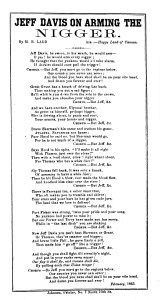
a Northern view
I want another thing. War is a game that cannot be played without men. [Cheers.] Where are the men? I am to open my whole heart to you, Look to the trenches below Richmond. Is it not a shame that men who have sacrificed all in our defence should not be reinforced by all the means in our power? Is it any time now for antiquated patriotism to argue a refusal to send them aid, be it white or black? [A voice–” Put in the niggers”– and cheers.] …
I feel that the time is rapidly coming on when the people will wonder that they ever doubted. Let us say to every negro who wishes to go into the ranks on condition of being made free–“Go and fight; you are free.” If we press them, they will go against us. We know that every one who could fight for his freedom has had no chance. The only side that has had the advantage of this element is the Yankee–a people that can beat us to the end of the year in making bargains. Let us imitate them in this — I would imitate them in nothing else. My own negroes have been to me and said: “Master, set us free, and we will fight for you we had rather fight for you than for the Yankees.” But suppose it should not be so — there is no harm in trying. With all my early attachments and prejudices, I would give up all. It can only be done by the States separately. What State will lead off in this thing ! [A voice–“Virginia.”] …
Mr. Benjamin asked, what do our enemies propose to do? and read from the New York Tribune of the 6th instant a review of Butler’s speech, which argued that it was the duty of the Government to render justice to the negro — to educate him — to give him a fair share of the lands his fathers wrought upon — to leave him in the State where he was reared, and to furnish him with the means to begin life. After that, he was to be let severely alone; that is to take his place with other citizens.
Now, said Mr. Benjamin, if there be a bell [hell] upon earth, it would be an universal emancipation of the negroes and the Yankees to rule over us. Can you imagine yourselves in a city where the municipal officers were your former slaves, in a military organization of which the officers were negroes? with the malice of the Yankees firing their hearts to wreak vengeance on us? That is to be our fate if we fail in this contest. And yet men object to making use of the means within our reach, because, forsooth, it might fail. It looks to me very much like a man rushing forth from his burning house, and begging his neighbors, for Heaven’s sake, not to throw water on his blazing roof, because it might spoil his furniture. [Applause.] …
Mr. Benjamin said he saw no prospect of a cessation of this struggle during the present year. Let every man stand up and nerve his heart to the contest. The enemy was utterly unable to continue this war beyond the present campaign. Let us stand up firmly, and we shall be free.
In conclusion, Mr. Benjamin drew a beautiful picture of peace and its consequent blessings, and said all that and awaited us if we nerved ourselves as we ought to for this last struggle.
The February 25, 1865 issue of Harper’s Weekly at Son of the South found Mr. Benjamin’s speech hypocritical with no chance of success:
JUDAH P. BENJAMIN.
IN his speech at the Richmond meeting to fire the rebel heart Mr. JUDAH P. BENJAMIN, of Louisiana, the rebel Secretary of State, strongly urged the policy of arming the slaves. When our soldiers in the trenches, said he, are crying out for help, shall we care whether the aid we send is black or white ? …
Or is it the whites who are to believe that all your teaching which seduced them into rebellion was false ? If the negro is only fit for slavery, why promise him freedom ? If God meant him for it, if it is his own wish, if he be happy in it, why disturb him, why not promise him that God’s order and his own choice shall be respected? If, as STEPHENS said, you went out of the old Union to form a new one upon slavery, what do you mean by abolition ? These are questions that will be asked, that ask themselves, and which you can not answer.
JUDAH BENJAMIN knows that the slaves understand this contest as well as he. JUDAH BENJAMIN knows that two hundred thousand armed slaves would be presently masters of ” the Confederacy.” Every rebel thinks of it and shudders. It is the most terrible alternative he could present. His promise of freedom as a boon shows that he is conscious that slavery is a wrong. And it has always been so since he has defended it. And he knew it before, as he knows it now. But if a wrong, are the slaves alone unconscious of it ? And when they are summoned to arms upon BENJAMIN’S plain confession that he and his class without their aid are helpless to avert the fate which gives the negro freedom, is the negro likely to be ignorant of his power? …




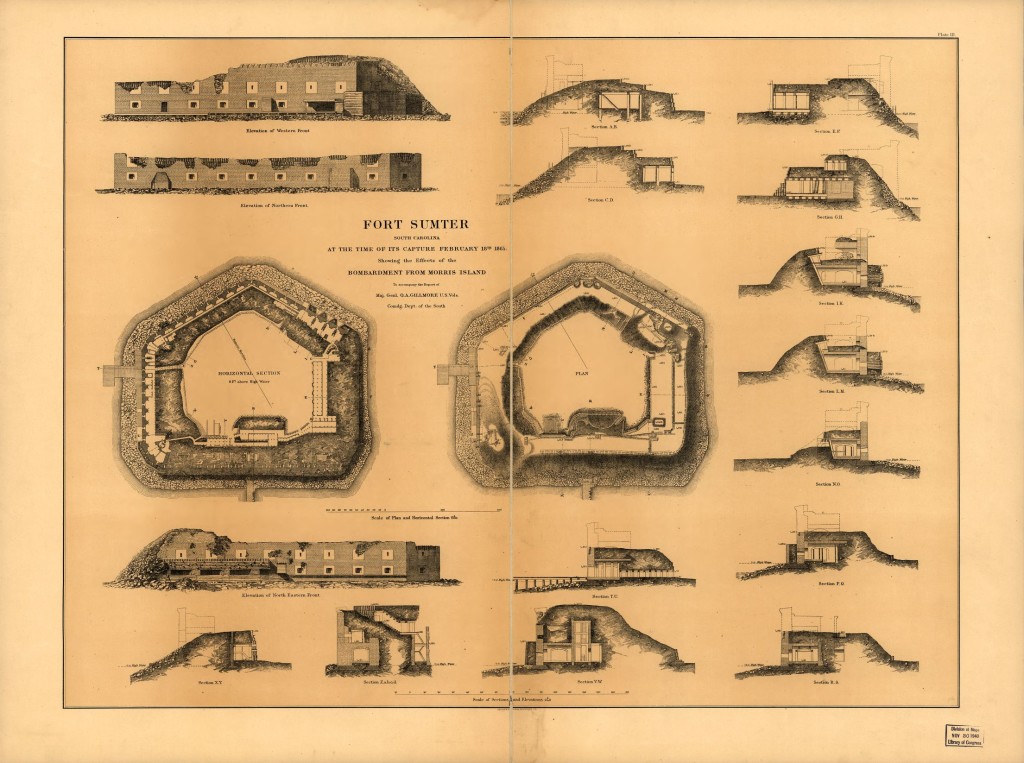
![Kimball & Gorton Philadelphia R.R. Car Manufactory, 21st & Hamilton Streets Philadelphia ( [Philadelphia] : P.S. Duval & Son's Lith., [ca. 1857]; LOC: LC-DIG-ppmsca-24876)](https://www.bluegrayreview.com/wp-content/uploads/2015/02/24876r-300x240.jpg)
![The Banjo ([Philadelphia] : Phil. Pho. Co., c1865.; LOC: LC-DIG-ppmsca-11512)](https://www.bluegrayreview.com/wp-content/uploads/2015/02/11512r-185x300.jpg)
